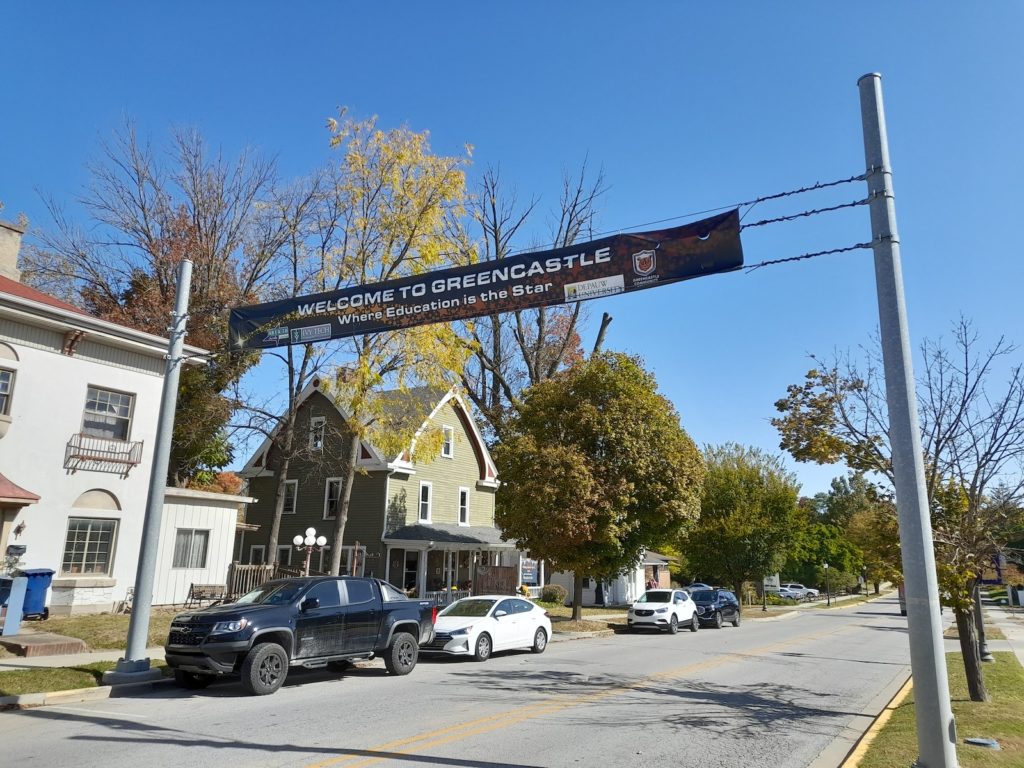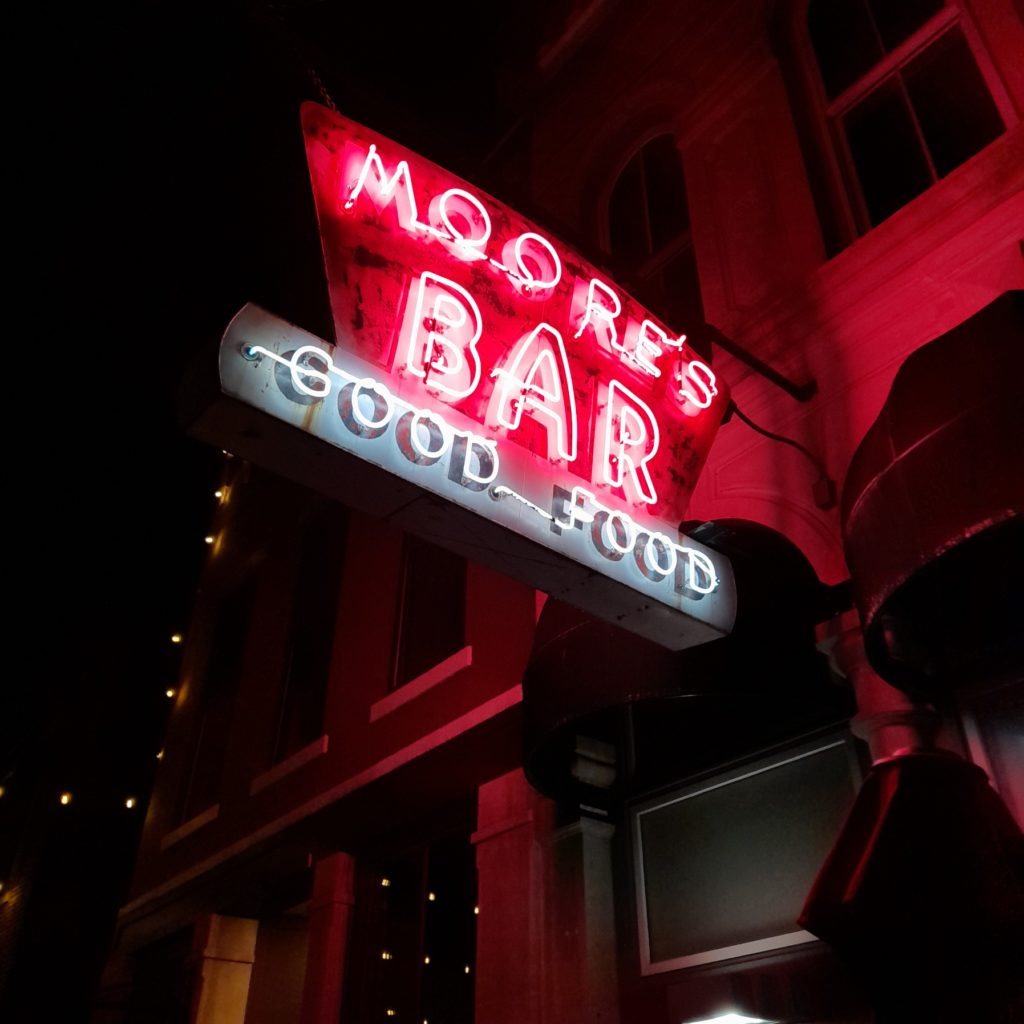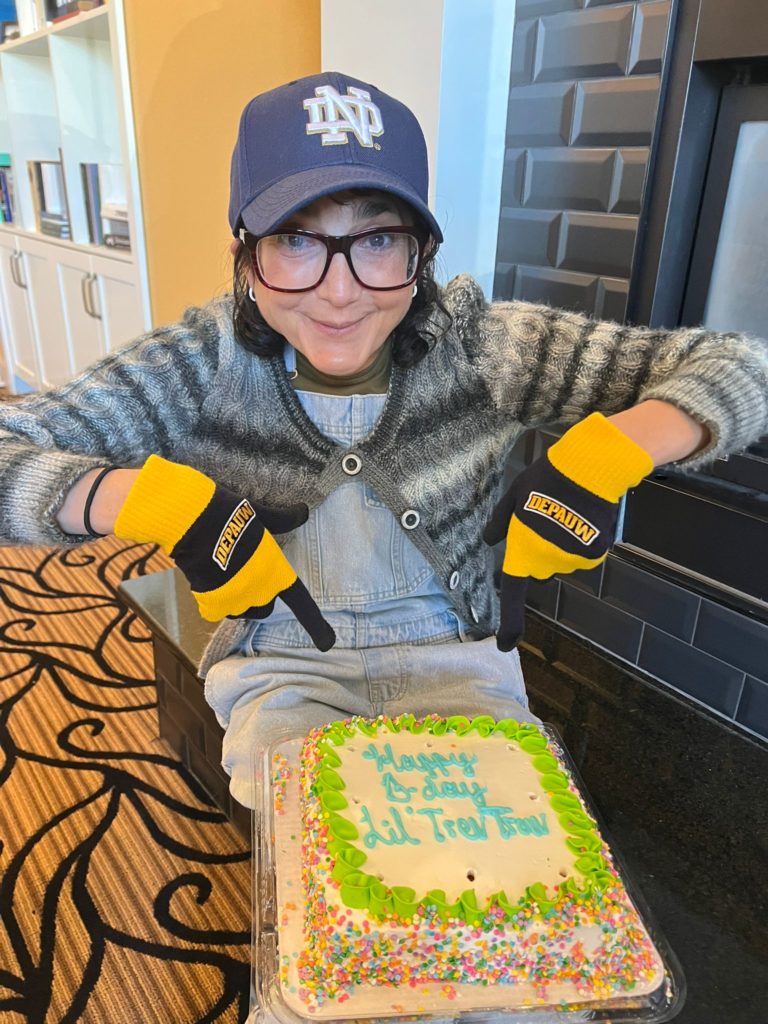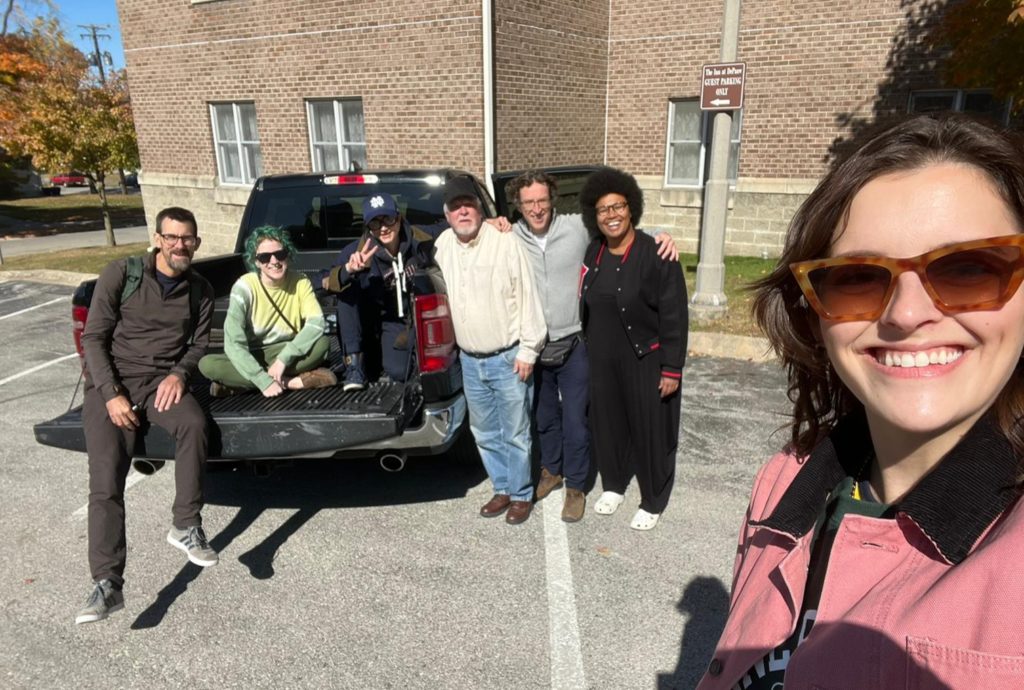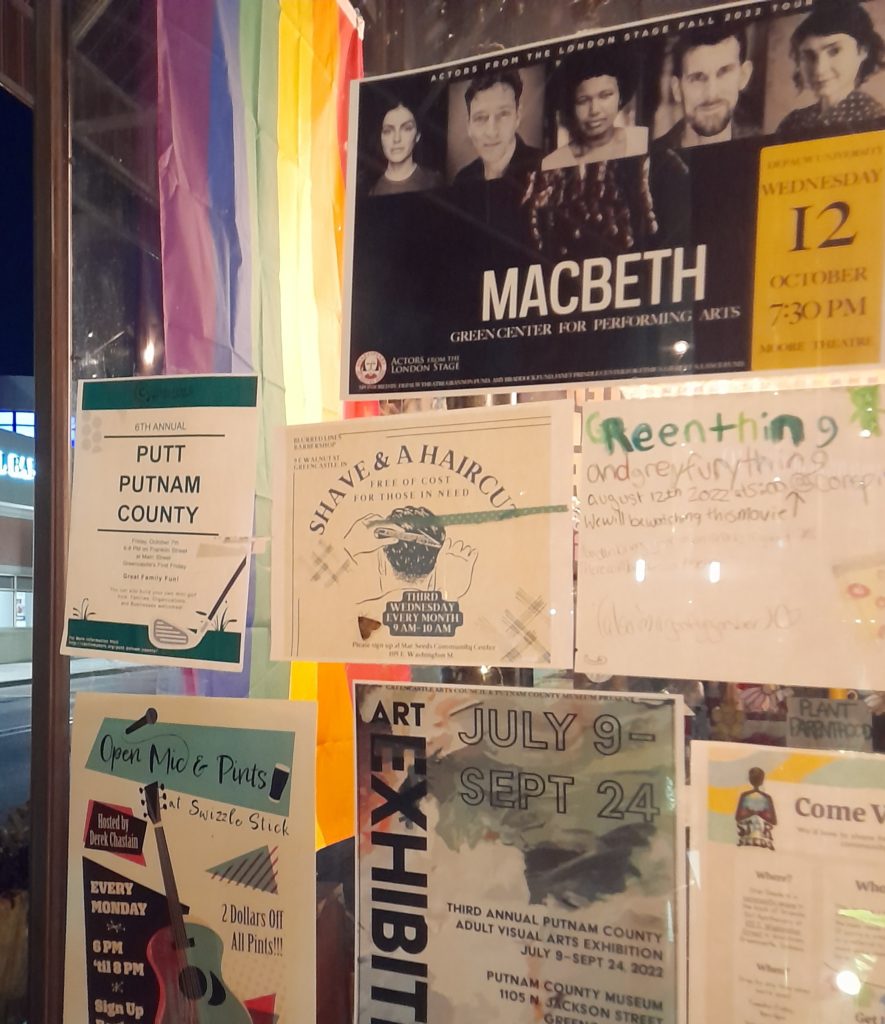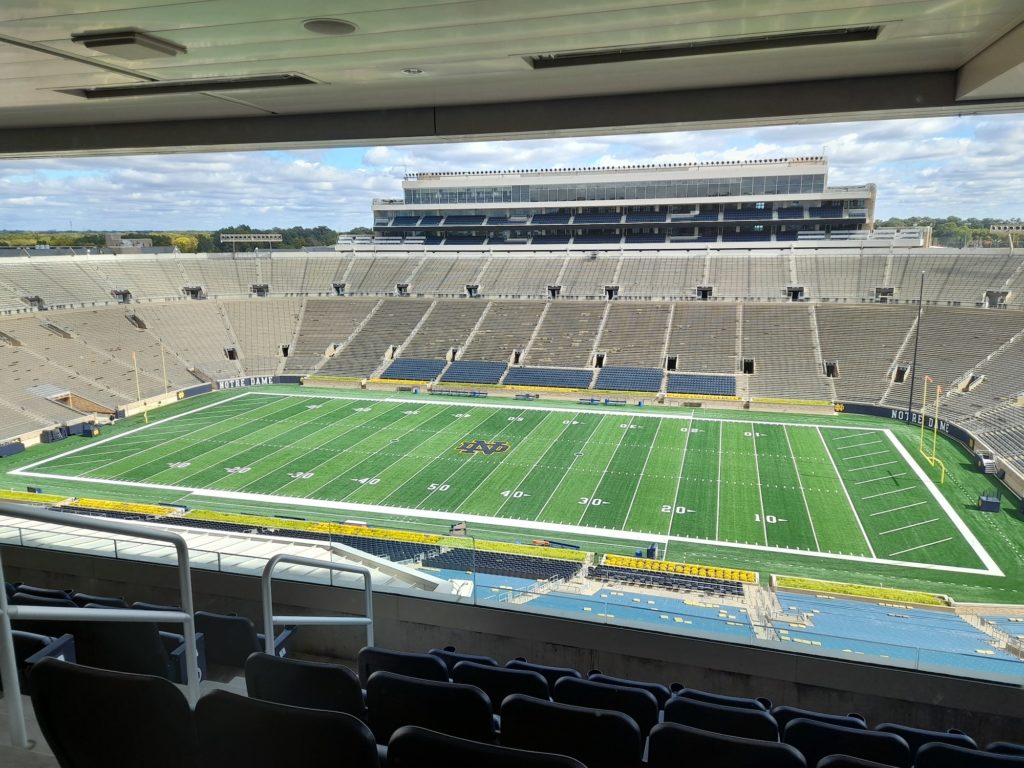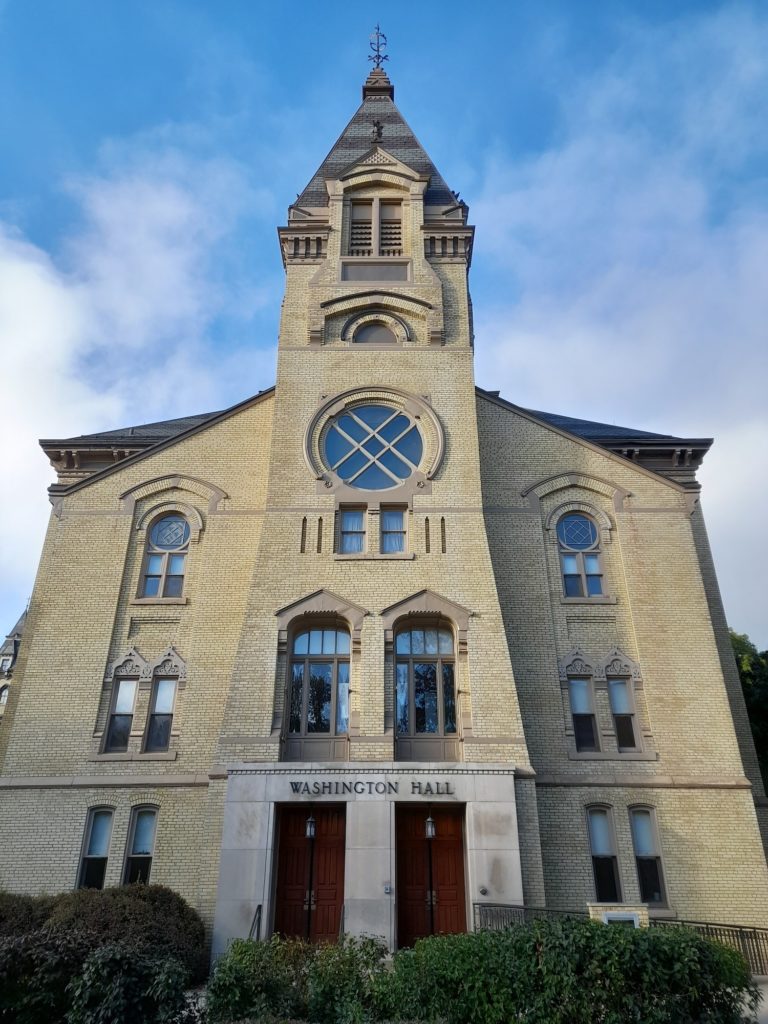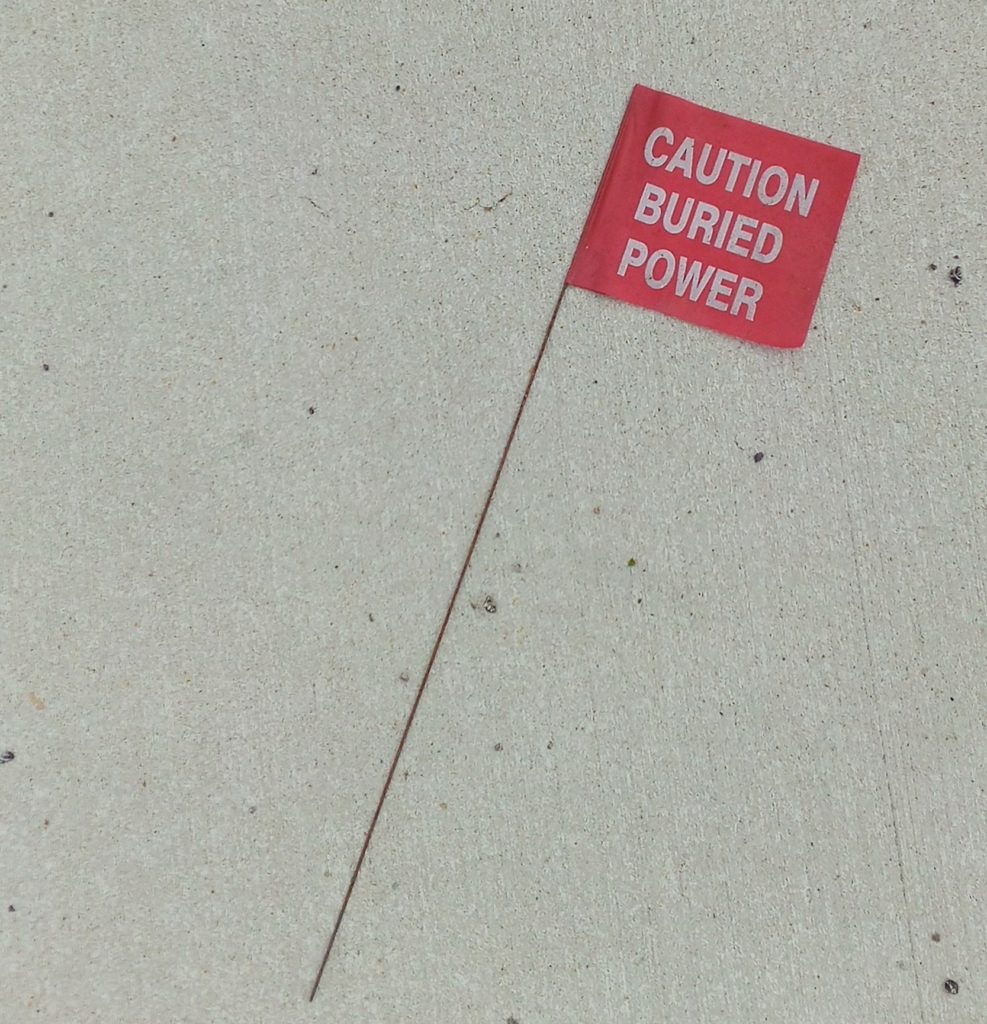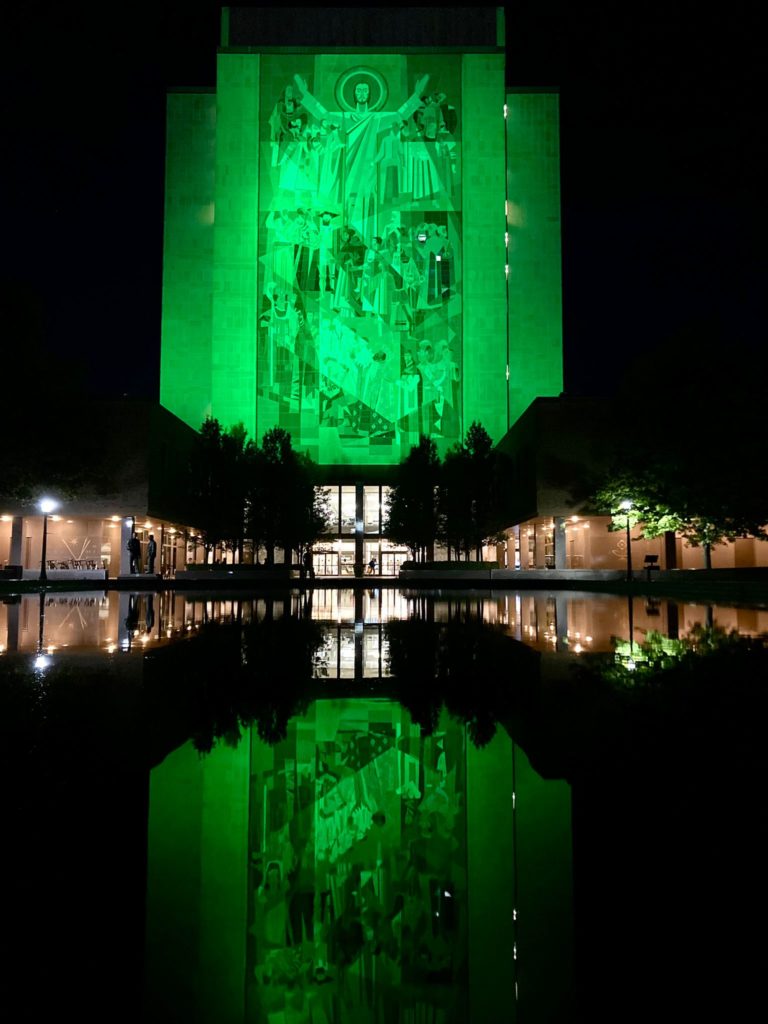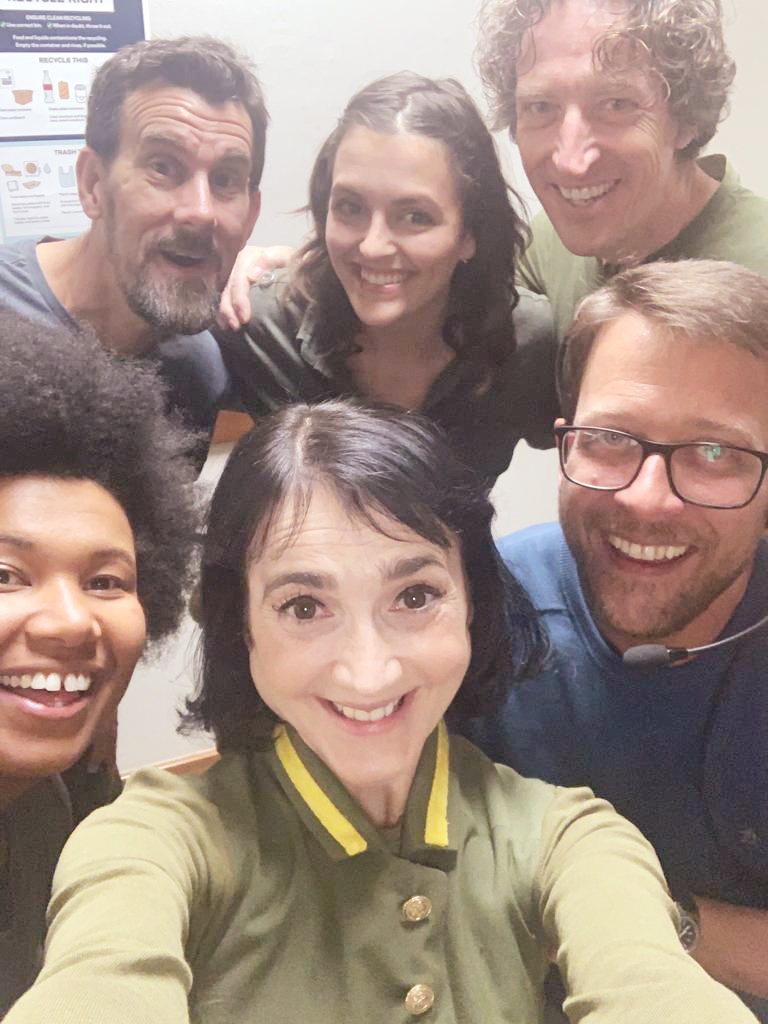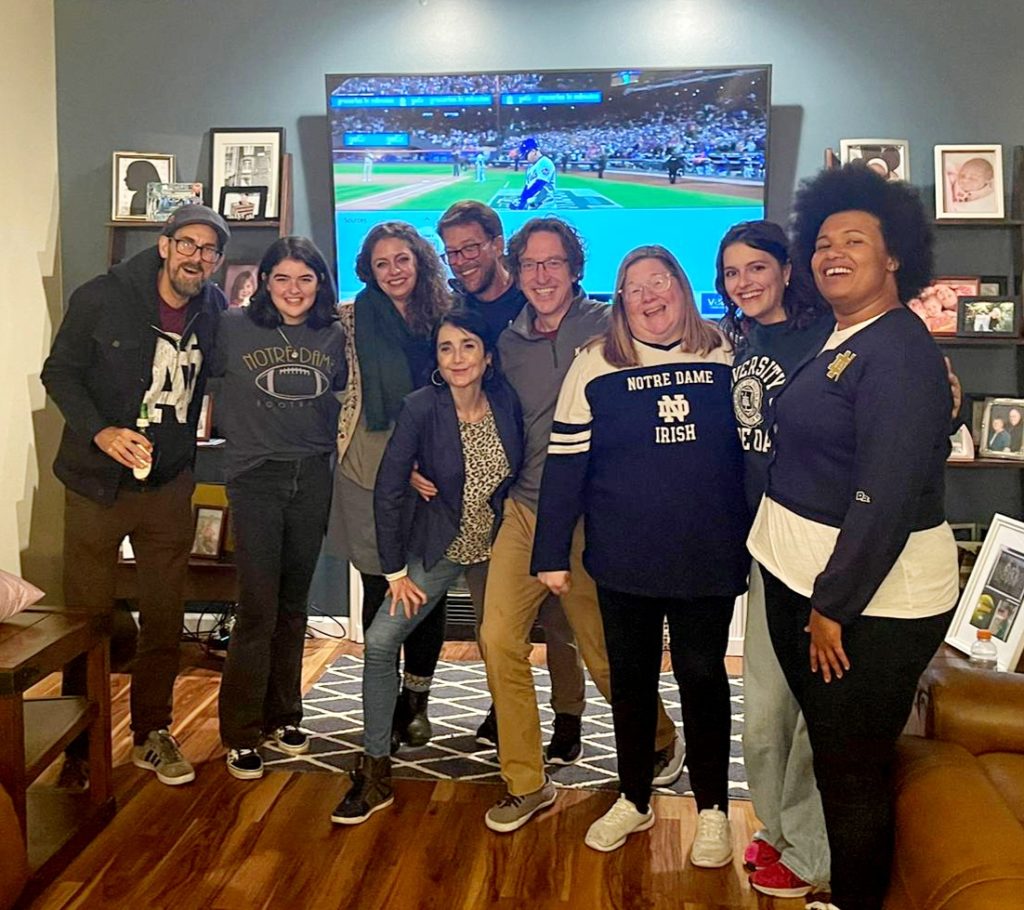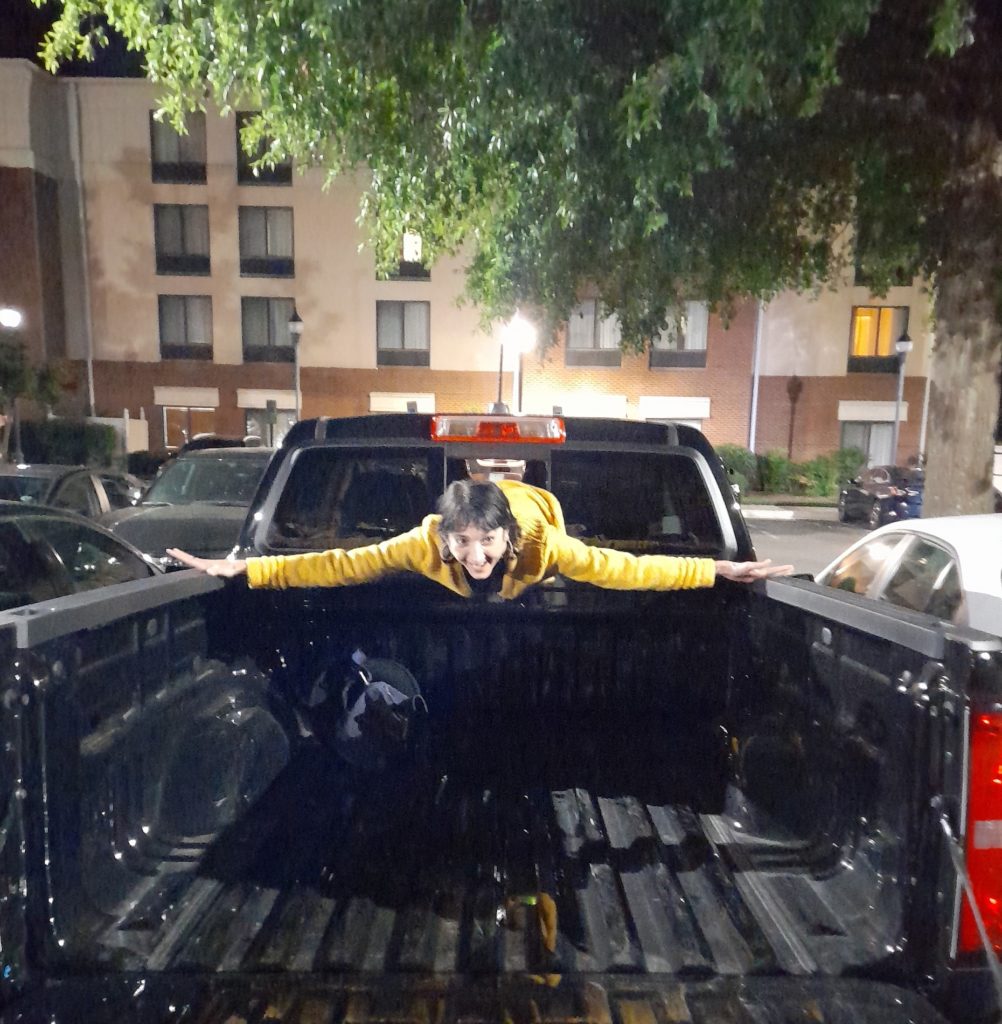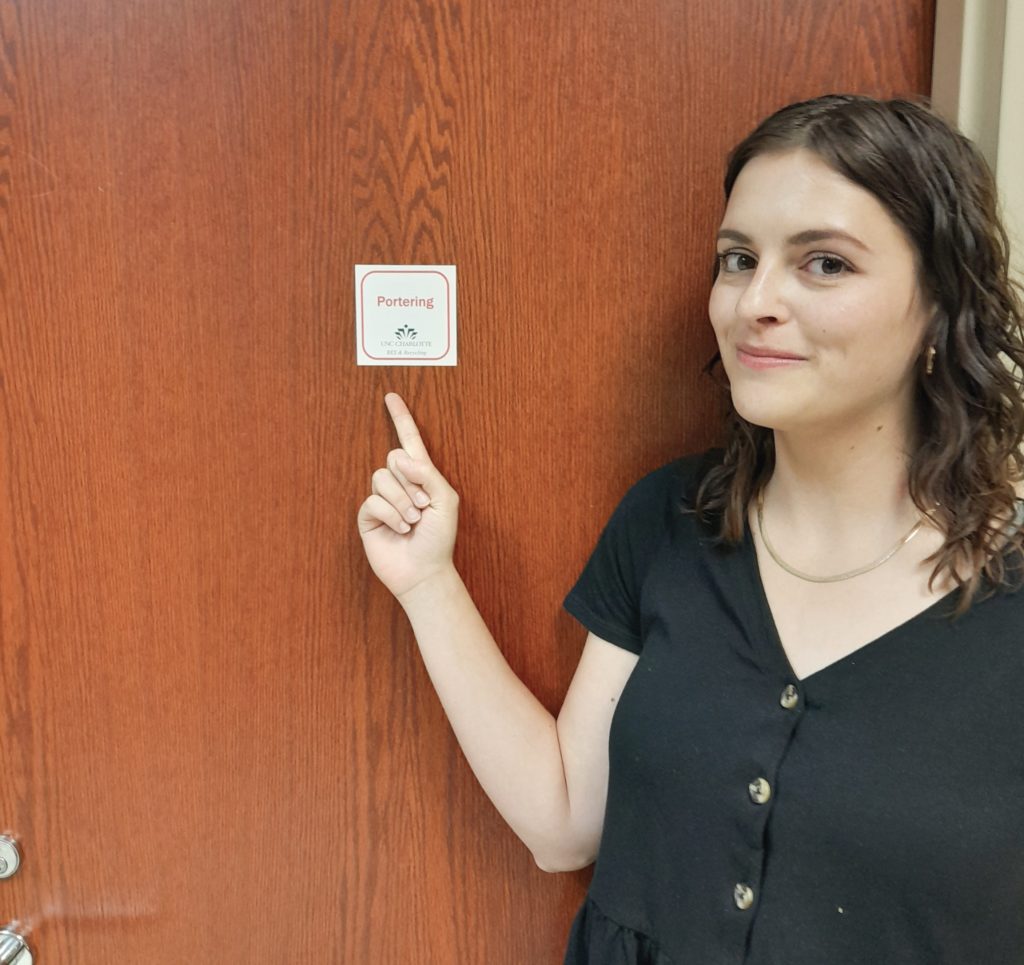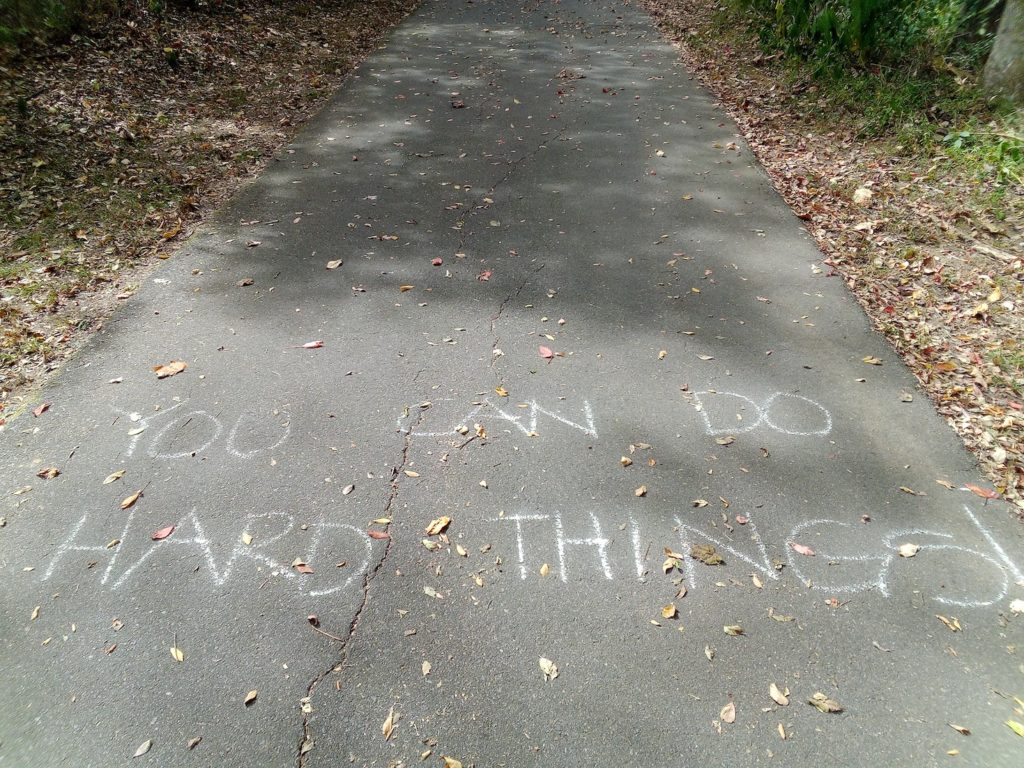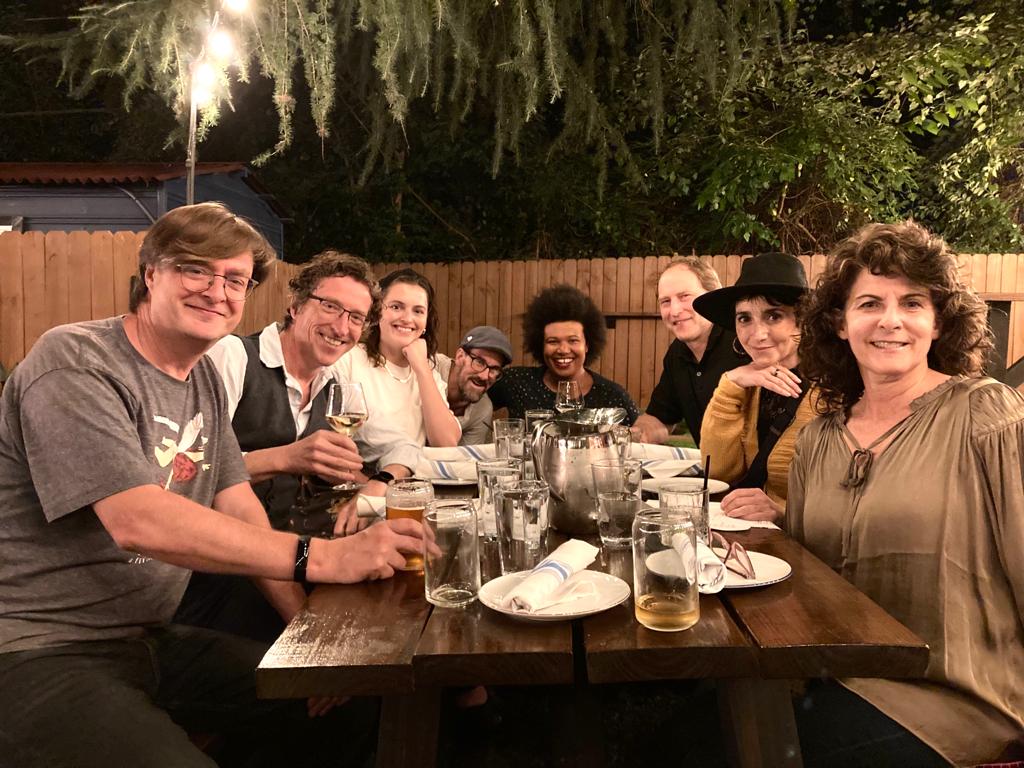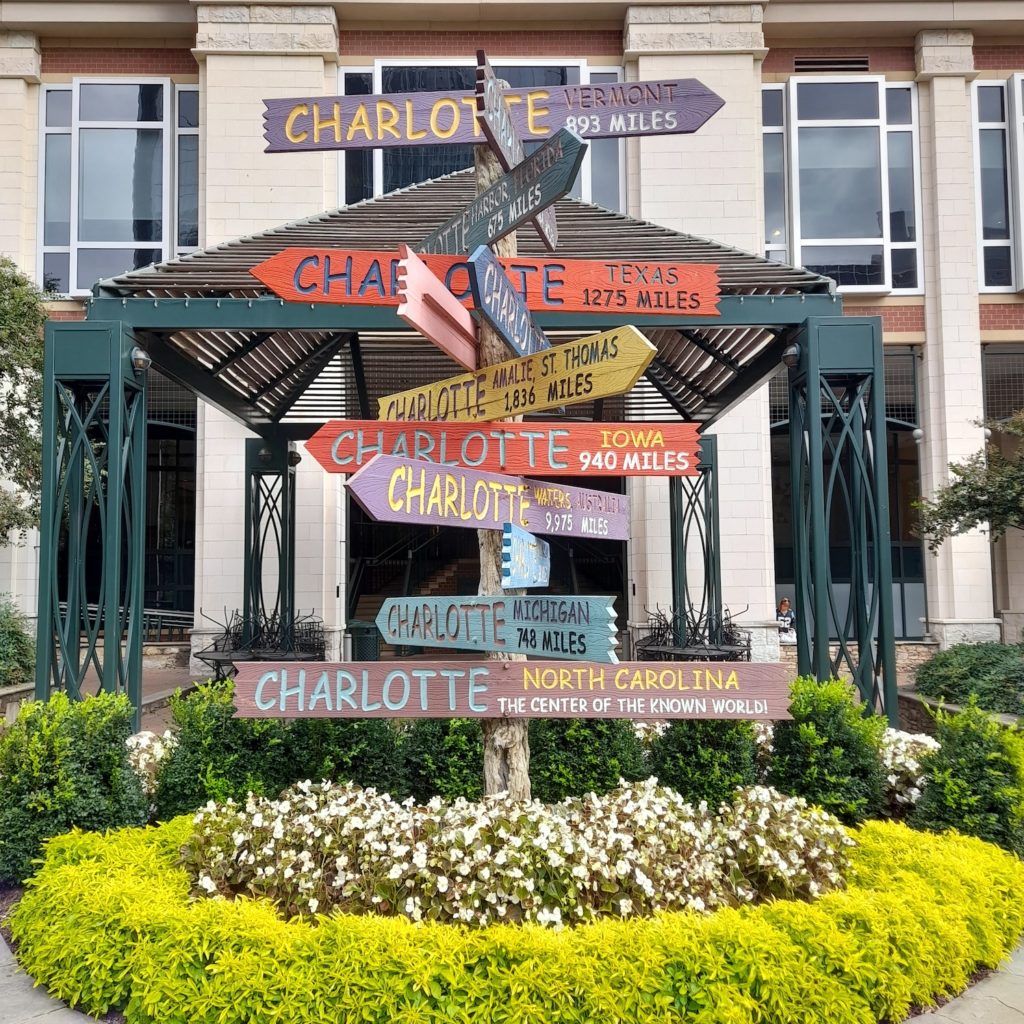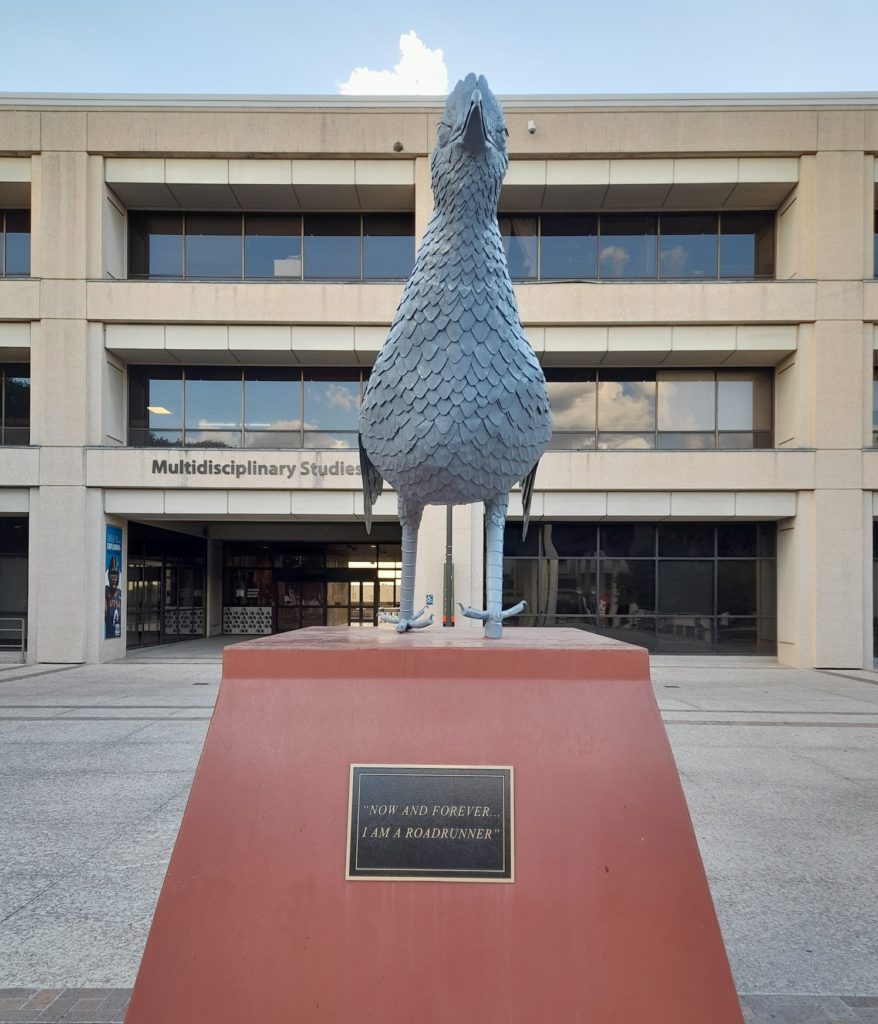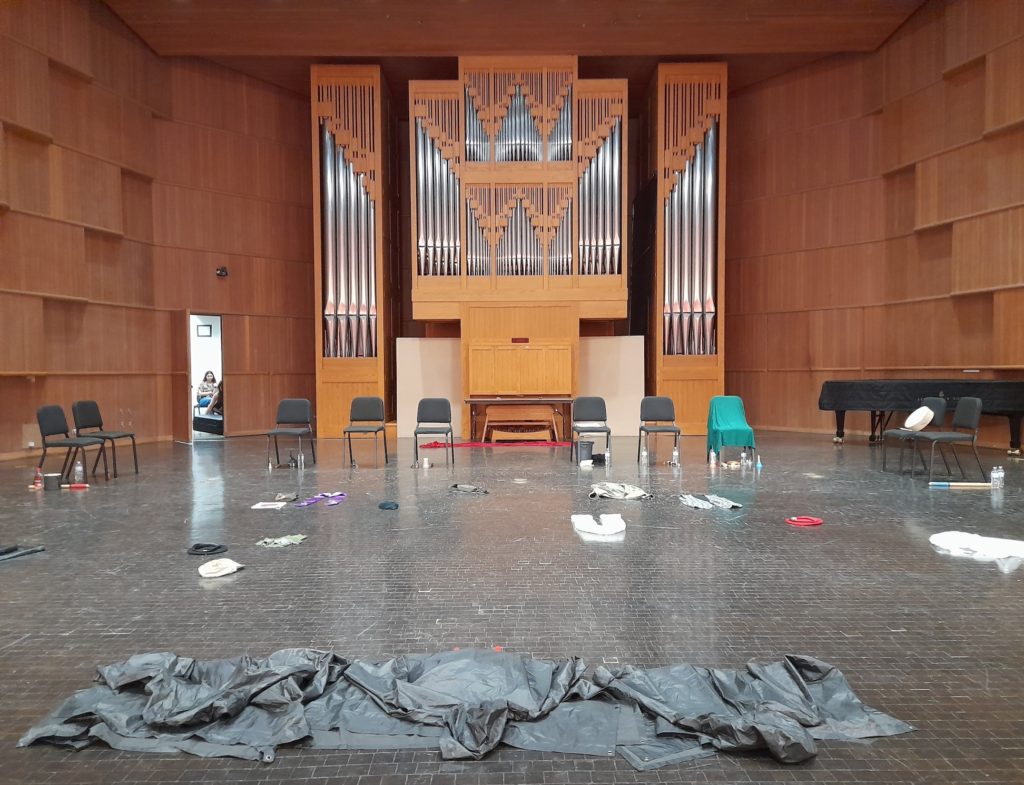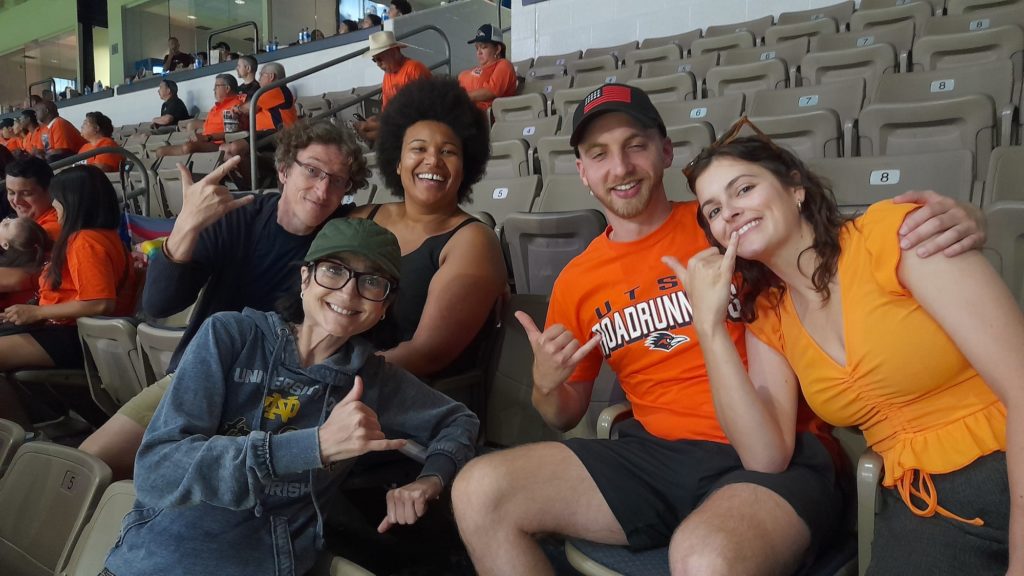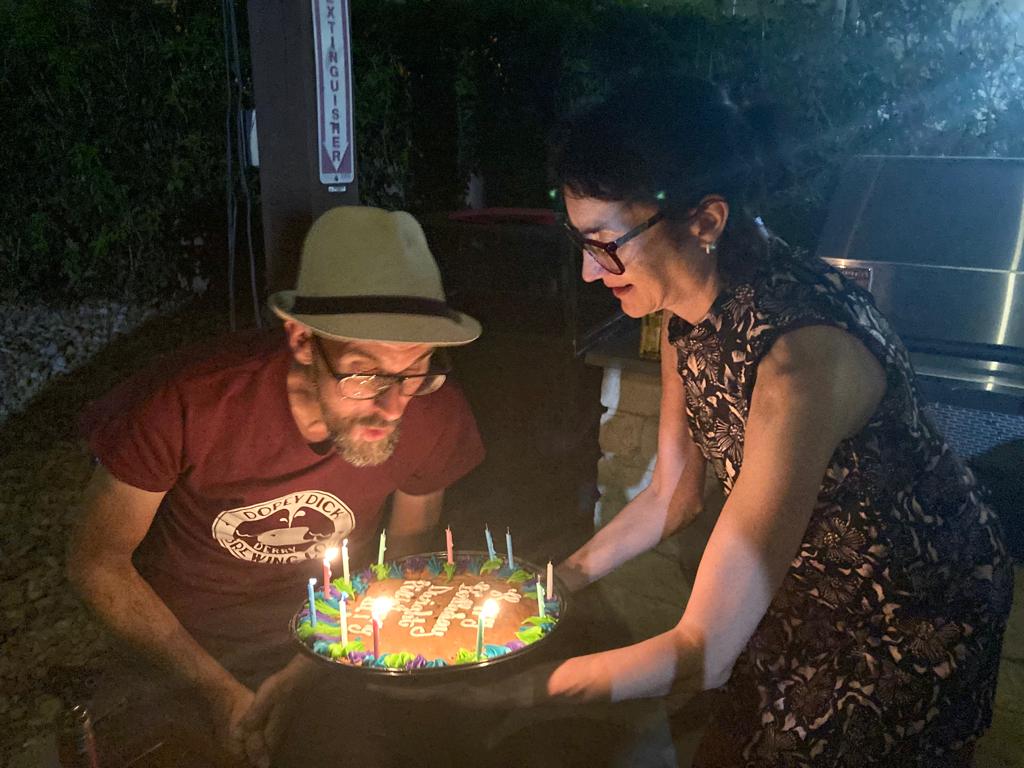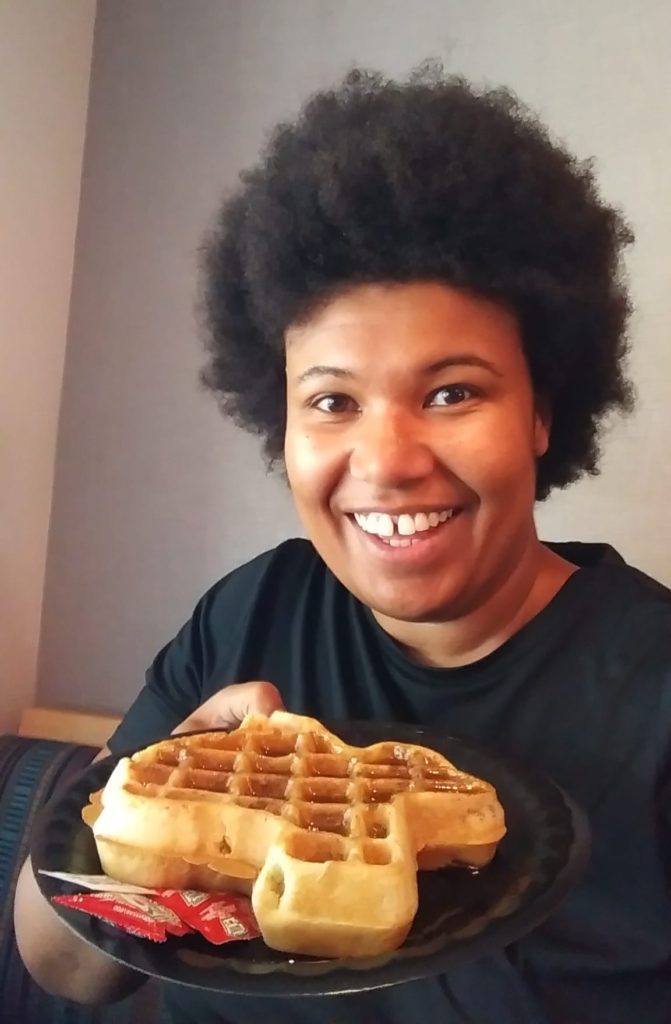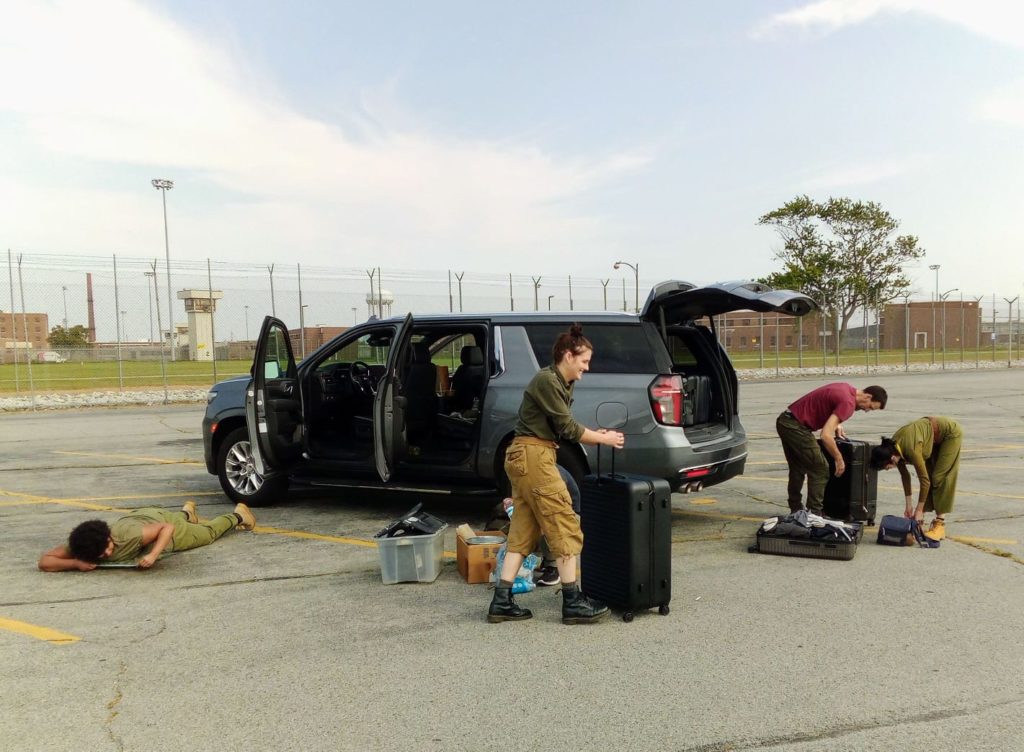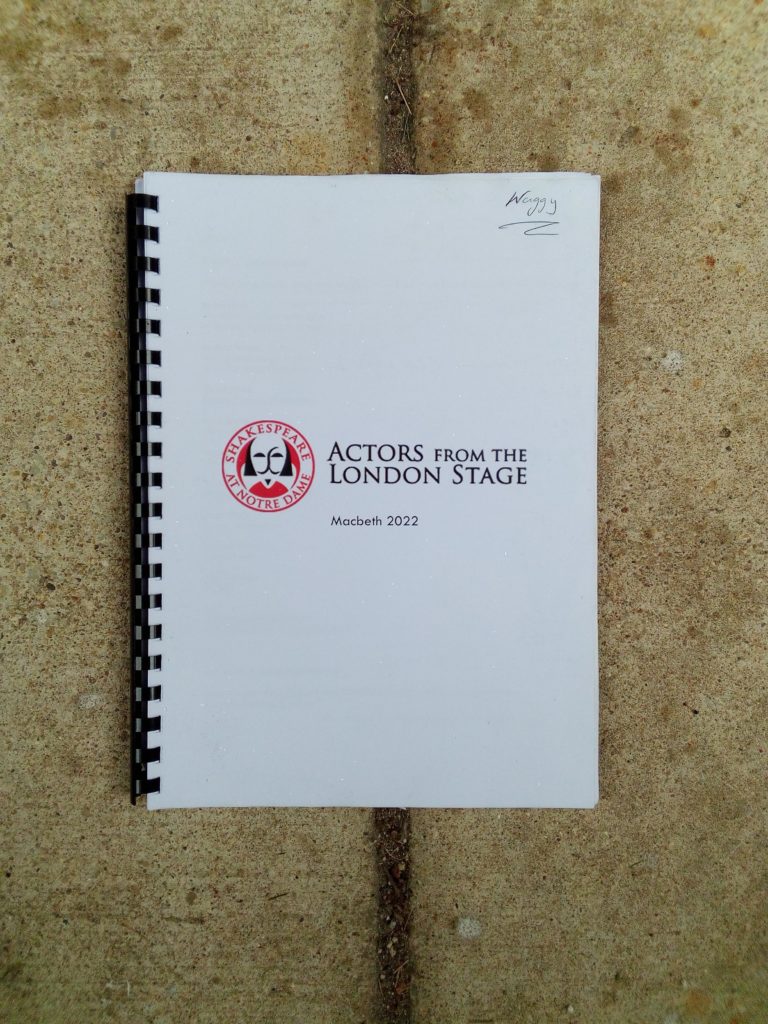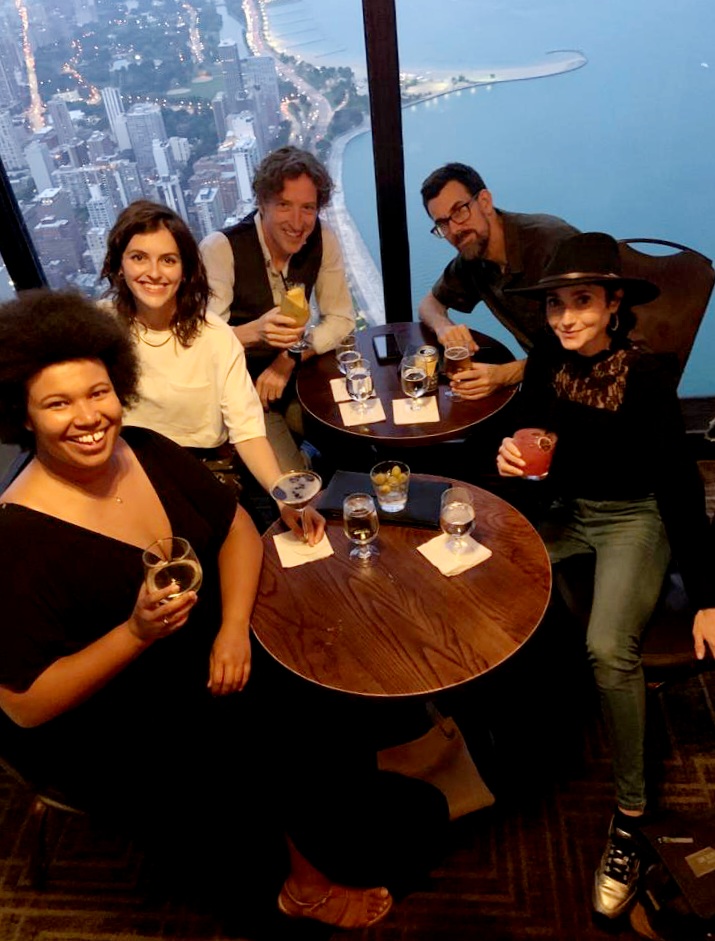By Michael Wagg
Small is beautiful
We’ve said so long to our brilliant colleagues at Notre Dame. To the wunderkind Scott Jackson, Executive Director of Shakespeare at Notre Dame, who has guided us, and many other groups before us, with commitment and boundless enthusiasm, and who also does remarkable work with the Shakespeare in Prisons Network. To Professor Peter Holland, Chair in Shakespeare Studies, whose warmth, insight and encouragement is so very welcome. To Debs and Jason who do just about everything possible to support our tour. And this time to Cate too, who stage managed superbly during our rehearsal and performance weeks. If Will Shakespeare himself were putting together a new company, he’d do well to get this five on board from the off, and pay them a packet of ducats. I’m borrowing from a five-a-side football team I once played for, but this ND team are Shakespearoes!
After saying our cheerios we didn’t travel too far from base, just a relatively short drive south to Greencastle, near Indianapolis. Capital of Putnam County, it’s a city with a small town feel, and lovely it is too. It’s been a pleasure to be able to stroll from hotel to campus to town without having to jump into a comically large pickup truck or cross a four lane carriageway on perilous foot. In fact here in friendly Greencastle our hotel is right on campus, while the campus butts right up against Downtown. More often during our residencies there’s driving distance between the three and lots, and lots, of busy roads. So after plenty of big stuff on the tour so far – big cities, big lakes, big stadiums, big crisps – it’s been a refreshing change to enjoy the simple pleasures of a small town, albeit one with an excellent liberal arts college at its heart.
We’ve got some rare (big) travels ahead of us, so the small pleasures of this week were welcome. As was the warm welcome we’ve received from staff and students alike at DePauw University, home of the Tigers! A special thank you to the inspiring professors Ron Dye, who teaches courses on playwrighting and songwriting and organises the AFTLS residency every two years; and to Andrea Sununu who first invited the company here 30 odd years ago. Professor Sununu’s surprisingly sprightly trot to demonstrate iambic pentameter is unforgettable!
The Wednesday evening show at the Green Center for the Performing Arts was our only show this week, so it served as a good reminder to focus back on it and to try to make every moment count. I realise I haven’t said much so far about how the shows themselves have gone, or the audience reaction to them, and thinking about that now (and without wanting to sound like a total twerp!) I’m finding that the intensity of this style of work (particularly the fact that we’re all on stage throughout) perhaps coupled with the forward thrust of this particular story, has meant that by the time we get to the end of it, I’ve often been so carried along in its momentum that I haven’t much of use left to say!
I don’t mean I haven’t kept the outside eye that’s necessary to keep safe and on track, particularly when we’re fighting, but I mean I’m genuinely swept along by the story each time we tell it (which is testament to my four mates on stage). And by the time we get to the other end, how well it’s gone doesn’t seem so relevant. It’s just gone. I don’t mean this flippantly; but taking the thinking out of it, being there, experiencing it with the audience, has often hit me, and is a rare and good feeling.
There have been plenty of other rare, simple pleasures this week: various strolls in the DePauw Nature Park, spotting turkey vultures, small snakes and all; an excellent collage exhibition called ‘The Many Hats of Ralph Arnold’; limitless lunch buffets in the Hoover dining hall (fill your boots lads, like turkey vultures!); lots of swimming, naturally; and live jazz at the Fluttering Duck pub to finish Claire’s tour birthday (we’ve decided those who don’t have a real birthday will get one anyway) – complete with a brilliant, impromptu guest spot from Anne Odeke, singing the weird sisters’ words to an improvised double bass accompaniment like she’s been here forever!
Because of the relative small scale of this place, over the course of the week it’s felt like quite a few locals have come to know who we are and what we’re up to here – a feeling of creating a bit of a buzz around town. Each time I nipped into Moore’s Bar for a swift one (which was fairly often) the women behind the bar asked when the others were coming back. (It seems Claire, Anne and Annabelle made quite an impression on their first visit!). Woody in the same bar would shake my hand and chuckle at my name, repeatedly. Jacks at the Duck treated us kindly. And on my last trip to a well-known coffee shop chain, my muffin arrived in a bag on which was scribbled ‘Break a leg, Michael.’ We’re heading to a very exciting stop next, but still it was hard to drag ourselves away from here, and the lovely, friendly ease of it all.
Still, just as I was telling the others about the thoughtful little message on the coffee shop bag, and lest the town be painted too perfect, we were brought soundly back down to earth as we loaded up the cars for Indianapolis airport. One of us noticed that someone had left us quite a different message, scrawled in the dust on the back of the pickup truck. I won’t spell it out but the two words started with an F and ended with an f. Fair do’s I thought, though I’m sure it was said in jest! Nonetheless, I think it’s time for us to fly away. You can have too much of a good thing. Book ’em, Danno, and take me to Hawai’i!
